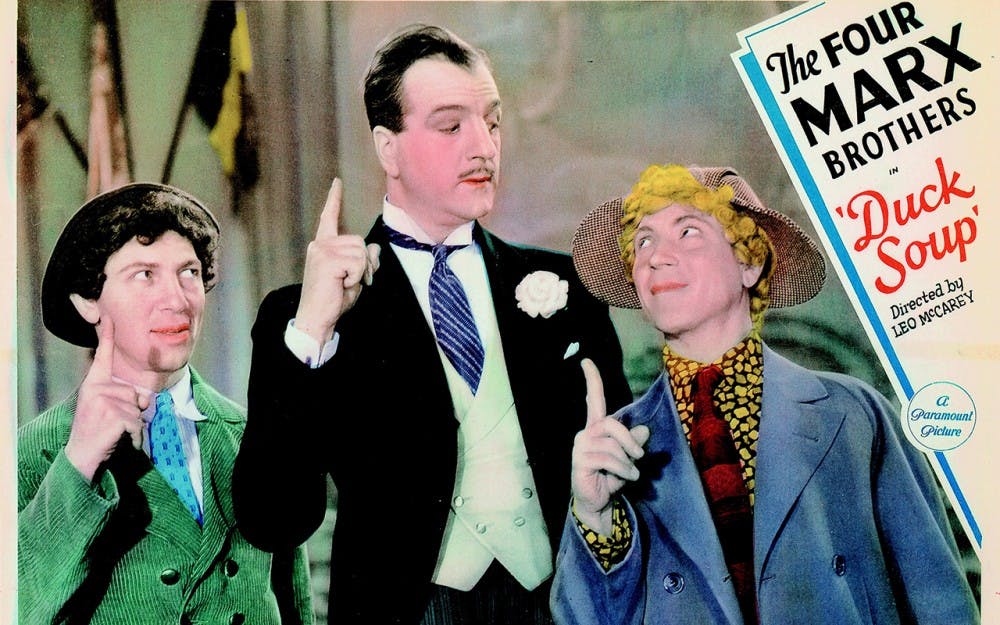“Duck Soup” is an influential comedy from the 1930s that combines varying comedic styles into an anarchically entertaining whole. Its satirical look at politics feels relevant.
This film was one of many that starred the Marx Brothers, a vaudeville act that began making movies in the late 1920s. Their stage names were Groucho, Harpo, Chico and Zeppo. Each brother had a different trait that corresponded to a different style of comedy. Groucho was the fast-talking master of verbal comedy. Mute Harpo specialized in slapstick and absurd gags. Chico did a funny Italian accent, and Zeppo was the straight man.
The supporting characters in a Marx Brothers movie never seem to be as memorable as the brothers, but an exception is Margaret Dumont, who was in seven of their movies and plays Gloria Teasdale in “Duck Soup.”
This movie takes place in the fictional country of Freedonia. A wealthy widow agrees to lend Freedonia’s leaders $20 million on the condition that Rufus T. Firefly is appointed leader. The somewhat-bonkers Firefly tries to govern as his country marches to war with its enemy, Sylvania.
Some of my favorite parts of this movie are the ones that are barely connected to the plot. An example is the famous mirror scene where Harpo has to pretend to be Groucho’s reflection in a mirror. There is no sound as the brothers act out what feels like the best version of a beloved childhood game. I enjoy this sequence in part because Groucho and Harpo are my favorite Marx brothers. Groucho’s puns and rapid fire delivery are distinctive and hilarious.
Some of the Marx Brothers’ comedies hold up better than others. “Duck Soup” is often cited as their best film. It was the last movie they made for Paramount Pictures and the last film in which Zeppo appeared.
“Duck Soup” has gone on to influence some of today’s classic comedies. Its non-stop barrage of puns and blatant jokes make it a type of grandfather to “Airplane!” The fast speed and absurd spirit of this comedy also seem to have had a big influence on the HBO TV movie “7 Days in Hell.”
“Duck Soup” was very topical in its day. It came out in 1933, the year Hitler became chancellor of Germany. Mussolini apparently banned it in Italy because he perceived it as an insult. It is still relevant because it shows the consequences of putting someone who is seemingly unfit to serve into power.
This movie stands the test of time not just because it has influenced modern comedies, but its mixture of wisecracks and slapstick is still funny today. At 68 minutes, it is a fast and funny watch.




